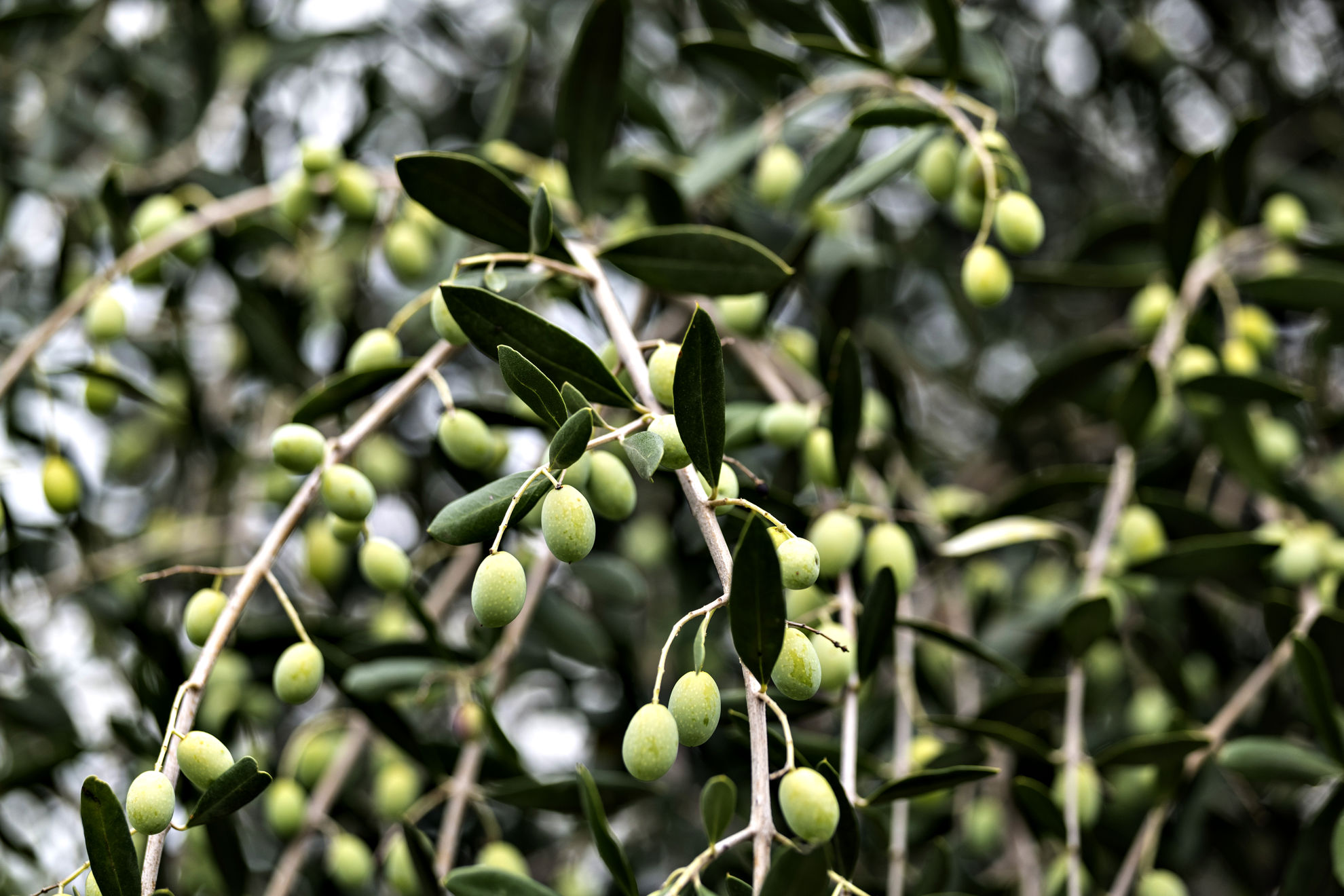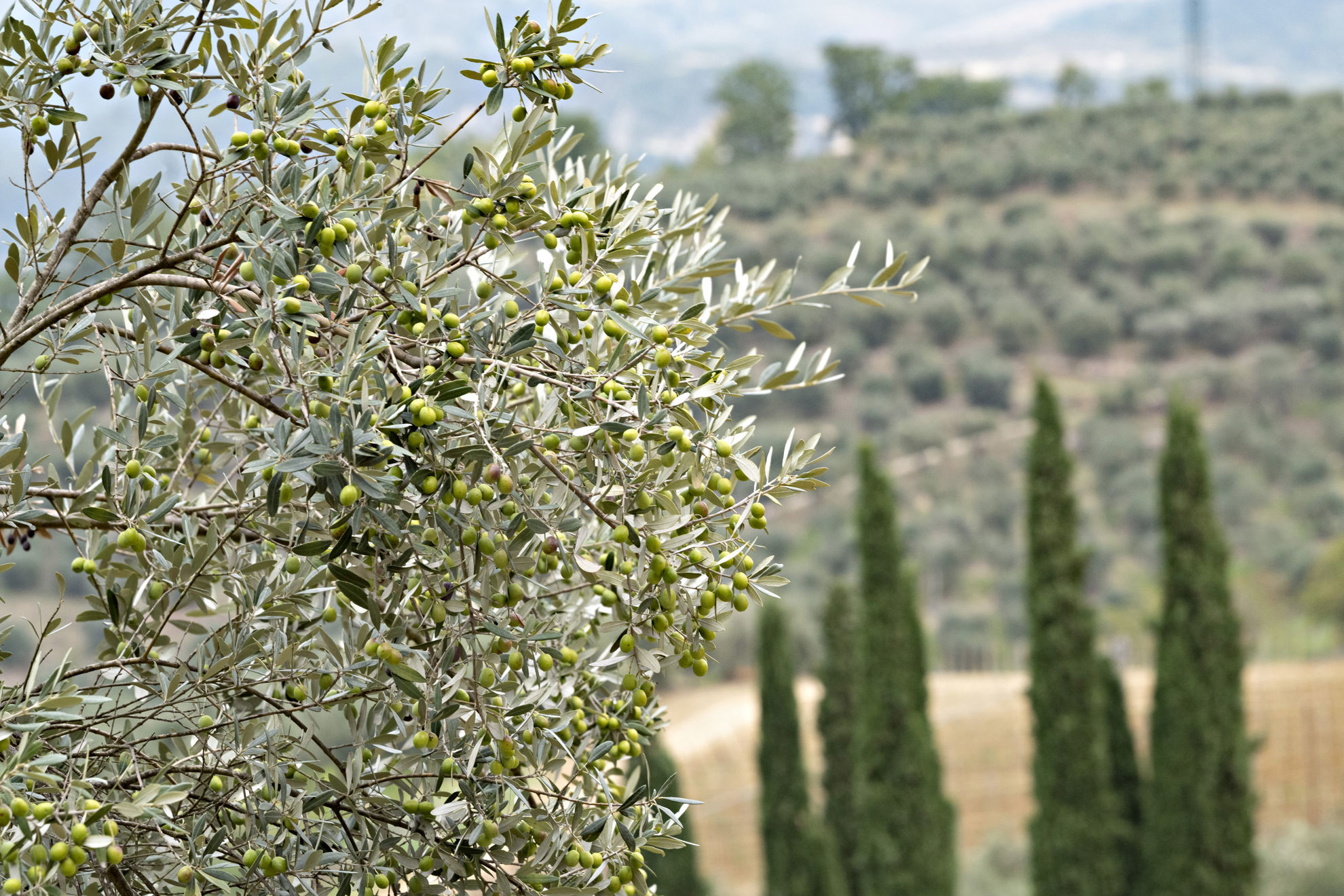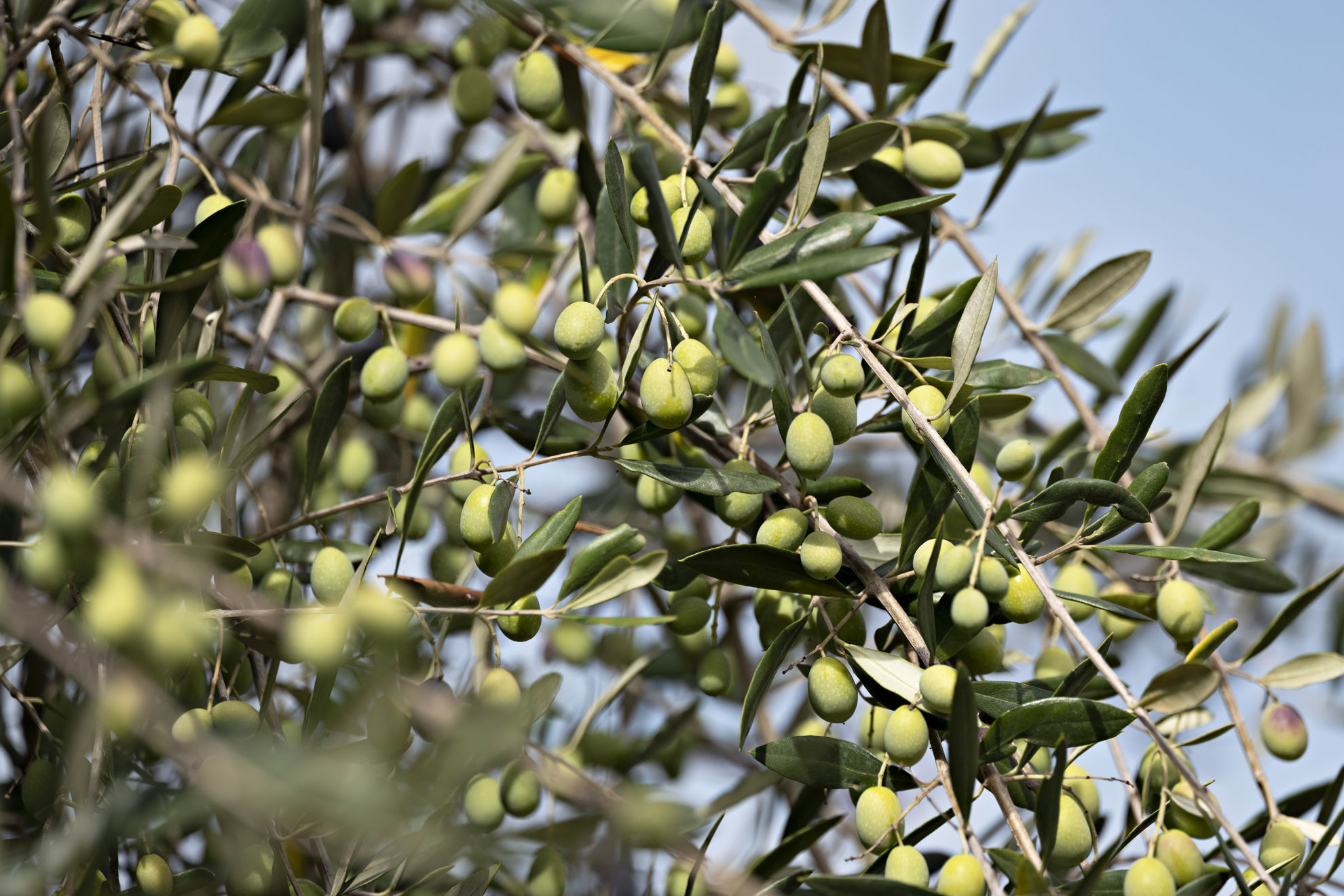
Olive oil is a product with an ancient history, which has played a crucial role in the history of human nutrition, influencing cultures and civilizations for thousands of years. But, what is olive oil? This precious golden nectar not only has nourished people and empires, but has also offered a source of economic wealth and has played a ritualistic and medicinal role in many societies.
Let's find out more and how is olive oil made!
The Fascinating Origins of Olive Oil
The first historical traces of olive oil date back to over 6000 years ago in the Eastern Mediterranean. In this area, the ideal climate and soil fertility allowed the prosperity of the olive tree, thus leading to the birth of olive oil in a short time. The oldest olive tree in the world, estimated to be over 3000 years old, is located in Palestine, bearing witness to the ancient roots of this symbol of peace. But how did olive oil come about, and where was it invented? The first evidence of olive oil production comes from the region of present-day Syria, where ancient people discovered that it was possible to extract a nutritious and versatile food from olives, consequently beginning to develop methods of oil extraction. With this invention, these societies also began to trade this new product, thereby introducing olive oil to neighbouring cultures.
Olive Oil in Ancient Babylon
Through this exchange path, it reached ancient Babylon. Olive oil quickly became a fundamental element in nutrition, medicine, and religious rituals. The question then arises, how was oil produced in antiquity? Unfortunately, we can only present hypotheses that emerged from various studies, but it is believed that the olives, after being harvested, were crushed with a stone mill, the olive press. The result was a pulp that was then pressed to extract the oil. It is astonishing to think that even after thousands of years, and a long and winding history in between, the principles used today are virtually the same.
Olive Oil in the Roman Era
With the Romans, olive cultivation and olive oil production spread throughout the Empire. Olive oil became a fundamental element in the Roman diet, often used for cooking, seasoning food, and even to fuel lamps. The olive tree was probably brought to Italy by the Greeks, and soon spread throughout the Roman Empire, thanks to its extensive cultivation, advanced production techniques, and the flourishing Roman trade network. The production reached a new level, mainly in Southern Italy, where the olive culture remains strong even today.
The Role of Olive Oil in the Middle Ages
During the Middle Ages, olive oil continued to play an important role in the daily diet, although the use of animal fats was preferred in less fertile regions. The oil was a simple product to obtain and produce, so it was present on the tables of all social classes, from the poorest to the richest. The techniques for producing and preserving olive oil were also perfected in this period, and the cataloging of olive trees and their fruits became widespread. The benefits of olive oil, such as its ability to promote good heart health and maintain healthy skin, were widely recognized and appreciated.


Olive Oil in Modern Times
In the modern era, the production and marketing of olive oil have undergone significant evolution, to the point of influencing the agri-food sector on a global level. Technological innovation and scientific discoveries have transformed the olive tree and its precious fruit, leading to more efficient production methods and a deeper understanding of the numerous organoleptic properties of olive oil. Today, olive oil companies adopt cultivation and harvesting techniques aimed at preserving the quality of the oil, and many of them rely on organic certification to ensure a genuine and sustainable product. Modern cold extraction technologies allow for better preservation of antioxidants and the organoleptic properties of olive oil, making it not only tasty but also highly nutritious.
One of the protagonists of this modern scenario is Laudemio oil, an example of high-quality Italian olive oil. This product stands out for its distinctive characteristics of freshness, purity, and intensity, a testament to respect for tradition and commitment to the pursuit of quality. Laudemio oil, with its rich flavor and fruity aroma, embodies the ideal properties of an extra virgin olive oil of excellence.
Olive Oil: A Treasure of Culinary History
Olive oil, from a humble product of the lands of the Eastern Mediterranean, has embarked on an extraordinary journey, reaching every corner of the world. An irreplaceable pillar of the Mediterranean diet, olive oil represents an invaluable treasure, whose history is tightly interwoven with that of our country. Its flavor and its delicacy, still much loved today, demonstrate that this product will continue to enrich our cuisine and shape Italian taste, as it has done for millennia, making an essential contribution to the richness of our gastronomic heritage for many future generations.